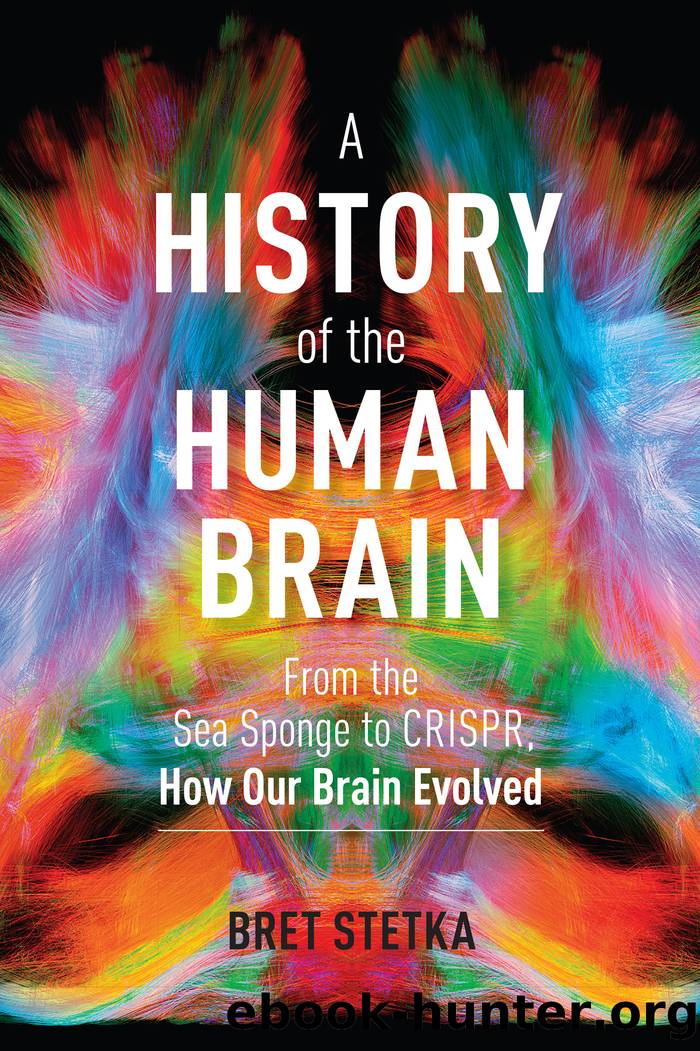A History of the Human Brain by Bret Stetka

Author:Bret Stetka
Language: eng
Format: epub
Publisher: Timber Press
Published: 2021-03-15T00:00:00+00:00
Good Grief
The counter to love and attachment is grief, our response to loss. Some see mourning as an evolutionary side effect of attachment. When we lose someone or something so important to usâwhether a relationship built on romantic love, social enjoyment, or an altruistic commitment to community or causeâhow can we not feel deeply shattered? Love isnât necessarily an addiction, but it shares the tendency toward obsession and compulsion. When we lose someone, it can look a lot like withdrawal from an addictive drug. The pain, emotional and physical, is real. In a letter to his mourning cousin, Darwin wrote, âStrong affections have always appeared to me, the most noble part of a manâs character and the absence of them an irreparable failure; you ought to console yourself with thinking that your grief is the necessary price for having been born with such feelings.â
After Iâd grown up and moved out of my parentsâ house, they lived for a few years next to a cattle farm in Barboursville, Virginia. I still remember being home for various holidays and hearing the plaintive, guttural cry of the mother cows when their calves were taken away and sold to another farm. Thereâs no telling what the moms were thinking, but Iâm convinced they were feeling some form of sorrow and mourning. They missed their babies.
Chimpanzees have been observed demonstrating something close to grief, which may inform the biology behind human mourning. Thereâs the well-known instance of a Zambian chimp communityâs reaction to the death of a nine-year-old group member, taken too soon by a respiratory infection. Researchers studying the group had named the young male Thomas. Within minutes of his death, twenty-two members of his forty-chimp community had convened around the body, sniffing and touching his corpse. They were eerily calm and quiet for chimpanzees, sitting and contemplating the death, even when presented with food. At one point an adult female ran over and slapped the body, as if asking, âIs he really dead?â or maybe telling, âLook, heâs dead! Letâs get on with things.â An adult male called Pan, whoâd cared for Thomas for years as an adoptive father, was distraught, frantically running around screeching and guarding the body from the others. A chimp named Noel moved in and cleaned Thomasâs teeth with a blade of grass.
Itâs hard to say for sure if the reaction to Thomasâs passing is definitely a form of grief, or if the chimps in his group were, for certain, mourning. But chimps are known to take far more interest in the remains of their friends and families than those of other members of their community.
Barbara King believes many animals demonstrate grief, and that a large brain size and lots of cognitive power is not necessary to rue loss. Elephants show intense interest in their dead, with members of different families traveling to the bodies of deceased elders, engaging in a sniffing and touching ritual similar to that of Thomasâs community. The well-reported saga of the orca J35 has also been interpreted as a mother in mourning.
Download
This site does not store any files on its server. We only index and link to content provided by other sites. Please contact the content providers to delete copyright contents if any and email us, we'll remove relevant links or contents immediately.
| Administration & Medicine Economics | Allied Health Professions |
| Basic Sciences | Dentistry |
| History | Medical Informatics |
| Medicine | Nursing |
| Pharmacology | Psychology |
| Research | Veterinary Medicine |
A History of the Human Brain by Bret Stetka(491)
The Spike by Mark Humphries;(463)
Basic Exercise Physiology by Moran S. Saghiv & Michael S. Sagiv(462)
The Plague Cycle by Charles Kenny(445)
The Whole-Body Microbiome by Brett Finlay & Jessica Finlay(420)
Virus Mania by Torsten Engelbrecht; Köhnlein Claus(397)
The Genetic Lottery by Kathryn Paige Harden(379)
Reviews of Physiology, Biochemistry and Pharmacology by Unknown(377)
Your Brain on Exercise by Gary L. Wenk(342)
Lymph & Longevity by Gerald Lemole(337)
Biophysics of Membrane Proteins by Unknown(325)
Soft-Wired: How the New Science of Brain Plasticity Can Change Your Life by Dr. Michael Merzenich Phd(294)
Fixing My Gaze by Susan R. Barry; Oliver Sacks(286)
Anatomy of the human body: Anatomy body part by Anik Ahmed(285)
Corona, False Alarm?: Facts and Figures by Karina Reiss && Sucharit Bhakdi(282)
Netter's Clinical Anatomy E-Book by John T. Hansen(279)
Structural Immunology by Unknown(254)
Essentials of Pathophysiology by Tommie L. Norris(244)
Brain Weaver, Volume 1 by Andrew Newberg(222)
